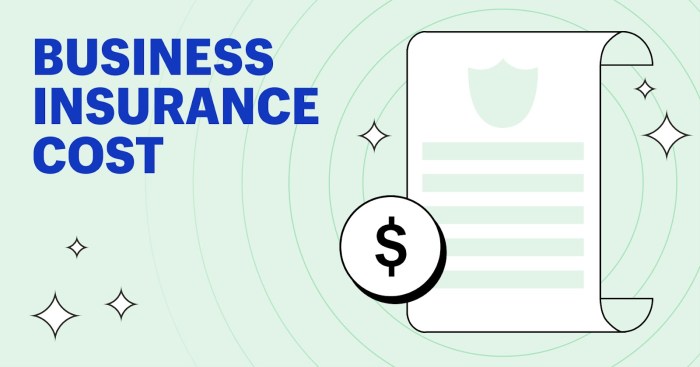Delving into the realm of Cheap Small Business Insurance That Doesn’t Cut Corners, this introductory passage aims to intrigue and inform readers with a blend of informative insights and practical tips.
Providing a detailed overview of the topic, this paragraph sets the stage for a deeper exploration of cost-effective insurance solutions for small businesses.
What to Look for in Cheap Small Business Insurance

When searching for cheap small business insurance, it is crucial to prioritize key coverage areas that will protect your business without breaking the bank. Comprehensive coverage is essential to safeguard your business from potential risks, but finding affordable options is also important.
To help you make an informed decision, comparing different insurance providers and their offerings can help you find a balance between cost and reliability.
Key Coverage Areas for Small Businesses
- General Liability Insurance: Protects your business from claims related to bodily injury, property damage, and advertising injury.
- Property Insurance: Covers damage to your business property, including buildings, equipment, and inventory.
- Business Interruption Insurance: Provides coverage for lost income and expenses if your business is unable to operate due to a covered loss.
- Professional Liability Insurance: Also known as Errors and Omissions insurance, it protects your business from claims of negligence or inadequate work.
- Workers' Compensation Insurance: Required in most states, it provides benefits to employees who are injured on the job.
Importance of Comprehensive Coverage
While it may be tempting to opt for the cheapest insurance option available, it is crucial to ensure that your policy provides comprehensive coverage. Cutting corners on coverage could leave your business vulnerable to financial risks in the event of a claim or lawsuit.
By investing in a well-rounded insurance policy, you can protect your business from various unforeseen circumstances.
Comparing Insurance Providers
When comparing insurance providers, look beyond the price tag to evaluate the coverage options and customer reviews. Consider the reputation of the insurance company, the ease of filing claims, and the level of customer service offered. By conducting thorough research and obtaining quotes from multiple providers, you can find affordable small business insurance that meets your needs.
Balancing Cost and Coverage
When it comes to small business insurance, finding the right balance between cost and coverage is crucial. You want to ensure that you are adequately protected without breaking the bank. Here are some key considerations to help you strike that balance:
Essential Coverage Options for Small Businesses
- General Liability Insurance: Protects your business from claims of bodily injury, property damage, and advertising injury.
- Property Insurance: Covers damage or loss of property due to events like fire, theft, or vandalism.
- Business Interruption Insurance: Provides coverage for lost income and expenses if your business is unable to operate due to a covered event.
- Workers' Compensation Insurance: Mandatory in most states, this coverage protects employees in case of work-related injuries or illnesses.
Evaluating Cost-Effectiveness of Insurance Plans
When comparing insurance plans, it's essential to look beyond the premium cost. Consider factors like coverage limits, deductibles, and exclusions to determine the overall value of the policy. A lower premium may seem attractive, but it could leave you underinsured in case of a claim.
Strategies for Negotiating Lower Premiums
- Bundle Policies: Combining multiple insurance policies with the same provider can often lead to discounts.
- Review Coverage Annually: Regularly review your coverage needs to ensure you are not paying for unnecessary coverage.
- Improve Risk Management: Implementing safety measures and reducing risks in your business can lead to lower premiums.
- Shop Around: Don't settle for the first quote you receive. Compare prices from multiple insurers to find the best deal.
Common Pitfalls to Avoid
Avoiding common pitfalls when selecting cheap small business insurance is crucial to ensure adequate coverage and protection for your business without compromising on quality. Here are some mistakes to avoid and tips to help you make the right choice:
Choosing the Cheapest Option Without Considering Coverage
One common mistake businesses make when opting for cheap insurance is choosing the cheapest option without considering the coverage it provides. While cost is an important factor, it's essential to ensure that the insurance policy offers adequate coverage for your business needs.
Opting for the cheapest option may leave you underinsured in case of a claim, leading to financial losses.
Risk of Inadequate Coverage
Opting for inadequate coverage to save costs can expose your business to significant risks. In the event of a claim, you may find that your insurance policy does not cover all the necessary expenses, leaving you to bear the financial burden.
It's important to assess your business's risks and choose a policy that provides comprehensive coverage to protect your assets and operations.
Tips to Avoid Cutting Corners
When looking for affordable small business insurance, consider the following tips to avoid cutting corners:
- Assess your business risks and insurance needs before selecting a policy.
- Compare quotes from multiple insurers to find the best coverage at a competitive price.
- Read the policy terms and conditions carefully to understand what is covered and excluded.
- Work with an experienced insurance agent or broker who can help you navigate the insurance options.
- Regularly review and update your insurance policy to ensure it aligns with your business growth and changes.
Understanding Policy Terms and Conditions
Insurance policies can often be filled with complex jargon that can be confusing for small business owners. It is essential to break down these terms to ensure a full understanding of the coverage provided. Let's dive into some insights on interpreting policy terms and conditions to help you navigate through them effectively.
Key Clauses to Pay Attention to:
- Exclusions: These are specific situations or events that are not covered by the insurance policy. It is crucial to understand what is excluded to avoid any surprises when filing a claim.
- Deductibles: This is the amount the insured must pay before the insurance coverage kicks in. Make sure you know how much you are responsible for in the event of a claim.
- Policy Limits: These are the maximum amounts that the insurance company will pay for covered losses. Understanding these limits can help you determine if you need additional coverage.
- Conditions for Coverage: Pay attention to any specific conditions that need to be met for the policy to be valid. Failure to meet these conditions could result in a denied claim.
Closure
Concluding our discussion on Cheap Small Business Insurance That Doesn’t Cut Corners, we have unraveled the complexities of finding affordable yet reliable insurance options without compromising on coverage quality.
Helpful Answers
What are the key coverage areas necessary for small businesses?
Key coverage areas include general liability, property insurance, and worker's compensation.
How can small businesses evaluate the cost-effectiveness of insurance plans?
Small businesses can evaluate cost-effectiveness by comparing premiums, deductibles, and coverage limits across different insurance providers.
What are some common pitfalls to avoid when opting for cheap insurance?
Common pitfalls include underinsuring, neglecting important coverage areas, and not reviewing policy terms thoroughly.
Can you provide insights on interpreting policy terms for small business owners?
Small business owners should carefully read and understand policy terms, especially exclusions, limits, and endorsements, to ensure they have adequate coverage.





